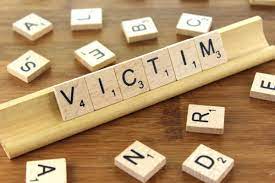Have you ever spent time with someone who was so sensitive to feeling hurt that everyone fussed around them to make sure they were feeling okay?
This person may have expected you to read their mind about what they wanted and then got annoyed when you failed to. They then make it your fault – ‘But you should know that that upsets me!’ Or ‘How could you have done that when you know how it makes me feel?’
You may then feel guilty at how selfish or thoughtless you’ve been and try and make it right.
That’s the power of the victim.

I’m using the word ‘victim’ here in a particular sense, to describe the way that someone can use that role to gain power in their relationships, often unconsciously. Of course, there are many victims in the world who have experienced abusive or damaging treatment and who have legitimate grievances.
But sometimes a genuine experience of victimhood can develop into a way of getting our power needs met in an indirect and sometimes manipulative way.
This may be particularly true for people who find it hard to be assertive and ask for what they need, but rather communicate their ‘hurt feelings’ and try to get other people to rescue them and take responsibility for their lives.
This can be seen with the Drama Triangle, a psychological model that shows how we can alternate between the roles of persecutor, rescuer and victim in our relationships. We may tend to be drawn to one role but can sometimes occupy a different role in the triangle.
In many couples there will be someone who tends to be the ‘rescuer’, who takes a lot of responsibility for the other person, and someone who tends to be the ‘victim’, who struggles in their life.
When couples become too rigid in these roles then problems develop and each can expeirence the other as the ‘persecutor’. In this case both partners are feeling like the victim and that’s often where, in a sense, we feel most comfortable. It’s much better to regard ourselves as a victim and the other person as the persecutor.
But it’s important that we recognise our tendency to gravitate towards being the victim. It’s only when we become aware that that’s what we are doing that we have a chance to change things and take appropriate responsibility by asking for what we want rather than using indirect and manipulative methods to get it.
In therapy I see part of my role as helping people see when they have been mistreated or abused, perhaps as children, and how that may have influenced the way they see the world and relate to others.
So, it’s important to validate when people have been victims. There may be legitimate anger towards those who mistreated them, and deep grief surrounding the experience. Giving those feelings a place in the therapy is important.
But sometimes we can become stuck in that victim place and that can keep limit our options as well as negatively affecting our relationships.
Image Creative Commons license, courtesy of https://www.thebluediamondgallery.com/wooden-tile/v/victim.html
For more information about my work visit http://www.patrickmccurrycounselling.co.uk